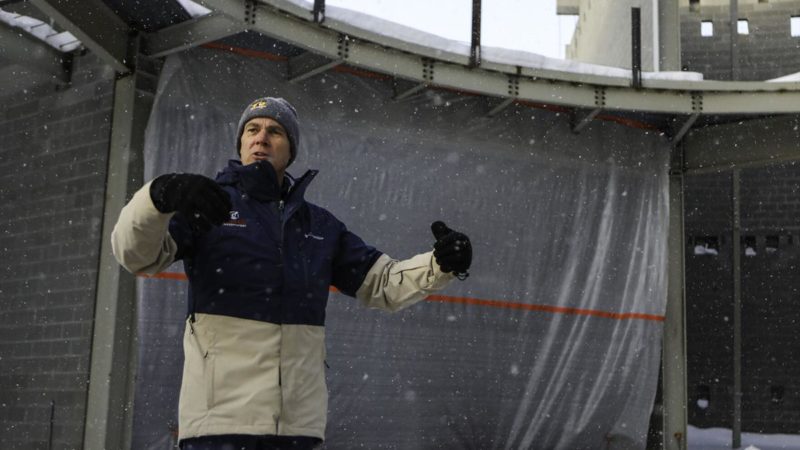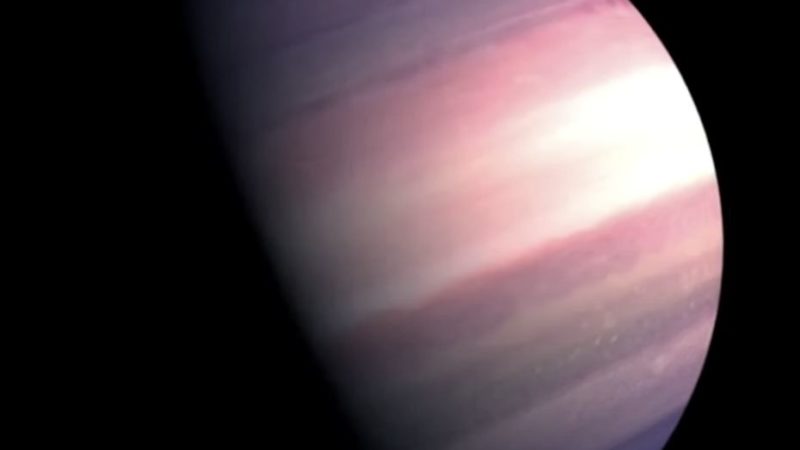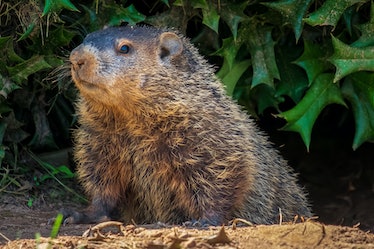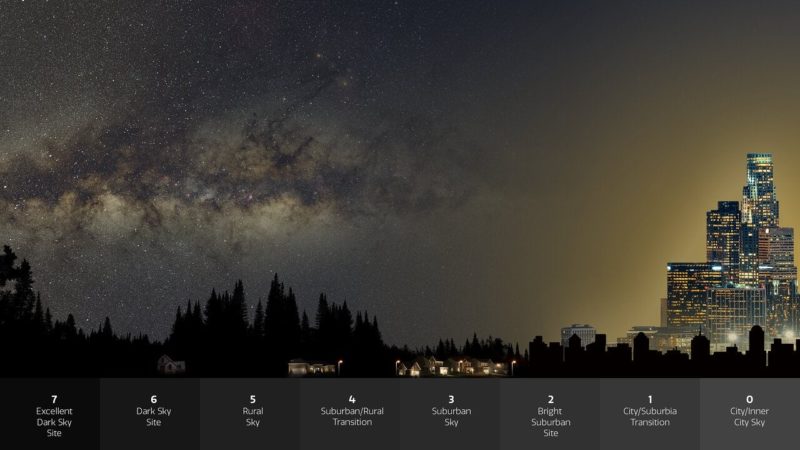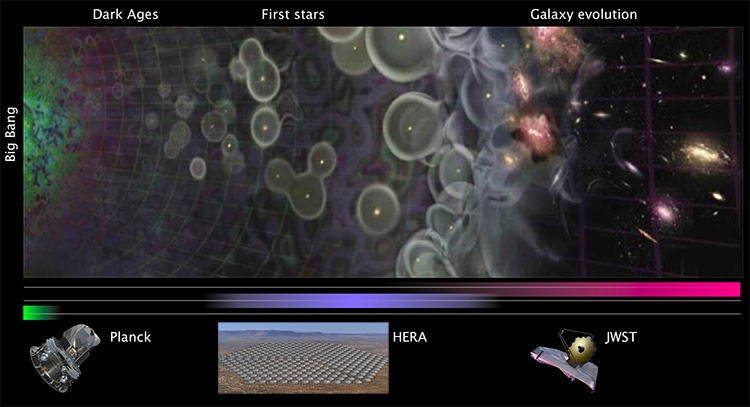Astronomy on Tap brings stars and suds to Trenton Social – Community News Service
Astronomy on Tap: Trenton (AoT: Trenton), where members of the scientific community visit local bars to share their knowledge, kicked off in 2019 at Trenton Social with a presentation “The Star That Ate Its Planets.”
It was presented by Melinda Soares-Furtado, a doctoral candidate in the department of astrophysical sciences at Princeton University.

Since then, AoT: Trenton has met monthly (with a couple of summer months off) to explore a variety of topics, from black holes to galaxies to the beginnings of the Universe.
Its next session is set for Wednesday, January 15, from 7 to 9 p.m. at Trenton Social on South Broad Street.
Astronomy on Tap (with the punny subtitle “Drink in the Universe”) was launched in New York City about six years ago as a series of events in which professional astronomers give informal talks at a local bar on topics of interest in astronomy and astrophysics.
Now presented across the nation, the events consist of two 10 to 15-minute presentations, followed by questions and comments. There’s also food, beer and soft drinks, and prizes for trivia winners.
Sessions are free, but a $5 suggested donation helps to keep things afloat.
This time last year the Princeton-Trenton area didn’t have an AoT at all, and Soares-Furtado says a major force behind its creation was Andres Plazas Malagon, an associate research scholar at Princeton University.
“I thought it would be great to create AoT in Princeton,” he says. “People started expressing their interest in helping with the organization, in particular Melinda, Sean Johnson, and Rachel Beaton (post-doctoral fellows in astrophysical sciences), who suggested doing it in Trenton instead of Princeton to reach a more diverse audience. Sean is friends with T. C Nelson, the owner of Trenton Social, and was able to find us that very cool venue.”
Astronomy and astrophysics have been enjoying a popular renaissance in the last decade or so, with celebrity-scientists like Neil DeGrasse Tyson publishing best-selling books and making the rounds on TV talk shows.
“I feel like it’s always been popular, but maybe I was always looking for it,” Soares-Furtado says. “Even before Neil, Carl Sagan had such an immense presence. He was so skilled in science communications. Then there are all the great science-fiction writers, these beacons from the past.”
“People are curious about science in general, and there’s Science on Tap events, too, featuring a broader field of scientists,” she says. “But we’re very lucky in astronomy because it’s a rare person who is not fascinated by new planets or black holes. Even a five-year-old can be excited about space. It’s an excellent entry point for science overall.”
Movies have also helped folks get energized about astronomy, astrophysics, and space travel, from “2001: A Space Odyssey,” to the “Star Wars” and “Star Trek” sagas, to more recent films with masterful computer graphics.
“Movies like ‘Gravity,’ ‘Ad Astra,’ and ‘Interstellar’ are so immersive because of the amazing CGI,” Soares-Furtado says.
Soares-Furtado’s childhood was spent on a dairy farm in the San Francisco Bay Area, where her immigrant grandparents, who arrived in the U.S. in 1966, did back-breaking work as tenant farmers, as did her mother, who is now a professional house cleaner. Her stepfather is a building superintendent in the Bay Area.
Young Melinda dreamt of pursuing college and research studies, especially in science and astronomy, but also in philosophy and psychology.
Soares-Furtado says popular astrophysicists, especially Sagan, helped spark her youthful interest in astronomy.
“Carl is absolutely one of those people I want to emulate, but not just in the field of science,” she says. “He also never forgot the value of outreach. He really enjoyed sharing his knowledge, and there wasn’t an audience he favored, which is beautiful and rare.”
Although Soares-Furtado had natural academic acumen, she felt she needed to take some time away, and spent about a year backpacking through Mexico and Guatemala after high school.
“I didn’t have any direction at the time, and I thought traveling would help illuminate a sense of purpose,” she says. “During that chapter of my life I witnessed immense political and economic adversity. I started feeling a lot less sorry for myself and started leveraging the opportunities I had as an American citizen. It was at that time I decided to attend college, and so I returned to the U.S.”
Reality got a little messy, Soares-Furtado says, and just as she was commencing her studies, she gave birth to a son.
“In many ways, my son and I grew up together,” she adds. “Today I am very glad I made the decision to become a mother, but I also recognize that becoming a parent so early in life added an increased level of stress and adversity that I could not have possibly anticipated. There’s a reason that young mothers don’t often pursue scientific degrees.”
She notes that “haphazard trajectories” are common for people with challenging socioeconomic backstories. Soares-Furtado spent years working in an assortment of jobs — as a personal trainer, Starbucks drive-through attendant, Walmart stockperson on the overnight shift, daycare center employee, etc.
“I’ve worked since I was 14 years old, often multiple jobs at once,” she says. “This is the reality for a teenager who has parents that are financially struggling. You have to become independent at an early age.”
“In facing this sort of adversity, you learn to maximize your opportunities and build a broad skill set,” she continues. “The good news is that I’m not afraid of hard work, and I definitely appreciate all the benefits that come along with a secondary education. No matter how hard graduate school feels, it’s nothing compared to working two jobs at a mall to make ends meet.”
In 2007 she received an A.A. in liberal studies from Gavilan College in Gilroy, California, then went on to U.C. Santa Cruz, graduating with a B.S. in physics in 2013.
She came to Princeton University as a graduate student researcher in 2014 and was a National Science Foundation graduate fellow from 2015 to 2018. Soares-Furtado earned her M.S. in astrophysical sciences in 2016 and expects to receive her doctorate in the field in 2020.
She lives in Princeton with her two children, a 13-year old son, and a daughter, 8.
Soares-Furtado is also a dancer, and one of her most interesting outreach projects was her performance in May for Princeton Research Day, when she danced in “Astrophysics Through Dance: From Stellar Death to Chemical Rebirth.”
Reflecting on her array of interests, Soares-Furtado says, “I’ve always liked to read about other subjects (than science), and I find all sorts of inquiry interesting — the human brain, how consciousness emerges, solving problems like climate change, etc.”
Although she and her colleagues look to and investigate distant stars and galaxies, she acknowledges the importance of also studying Earth-bound problems like climate change and sees the need to raise awareness and seek solutions for such man-made misfortunes.
Happily, Soares-Furtado has observed her own children and recognizes the exceptional potential of their age group. Even in the face of climate crisis after crisis, she feels optimistic about the future.
“I’m super excited about this next generation, there’s even a Climate Change Club that meets at lunchtime at my kid’s school,” she says. “This next generation is so eager to address these problems.”
“My own generation was consumer-driven, but these kids are creative,” Soares-Furtado says. “Their level of innovation is so high and their initiative is remarkable. They’re brilliant.”
Astronomy on Tap, Trenton Social, 449 South Broad Street. Wednesday, January 15, 7 to 9 p.m. $5 donation. www.astronomyontap.org

